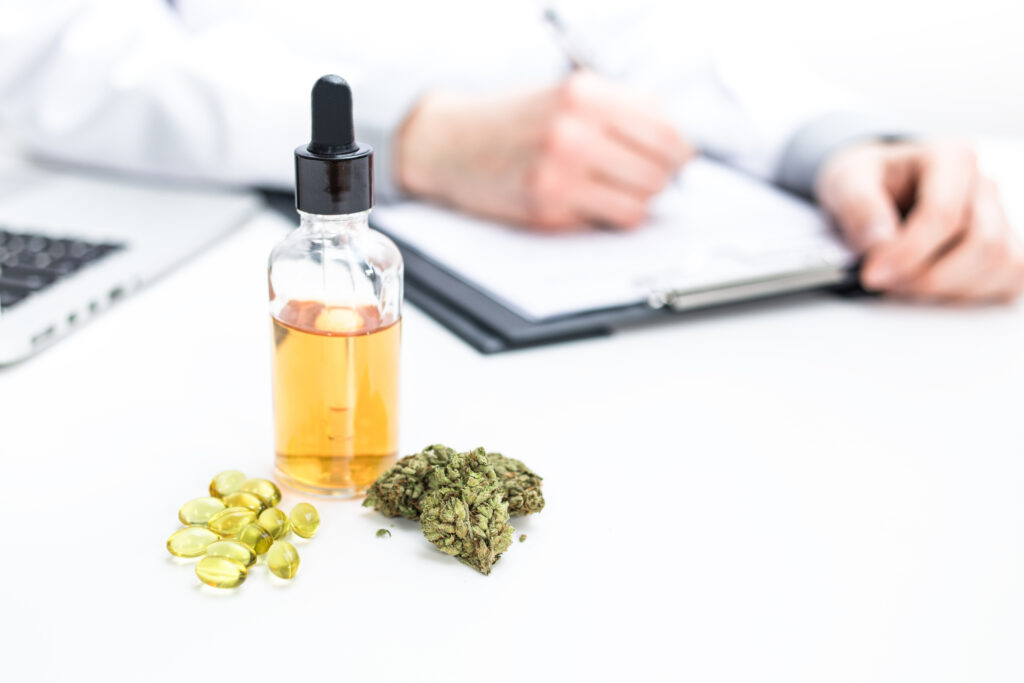
Despite being fairly young, the Cannabis Industry is heavily regulated—with strict laws and guidelines influencing how these cannabis products are made, sold, and distributed. Cannabis promotion laws can be overwhelming, but it’s incredibly important to carefully inspect the points outlined in the Cannabis Act. In this context, “promote” is understood as the “means to make … a representation” of a thing or service with the intent of selling it—likely influencing beliefs and behaviours about this item.
With that in mind, we will explore some key cannabis advertising laws here, providing a brief overview of some principle recommendations and prohibitions.
Learning Basic Legal Cannabis Promotion Laws
Amidst the list of promotional prohibitions, the Cannabis Act includes a list of limited exceptions that authorized cannabis retailers can use to promote their products. This includes informational promotion, which is permissible when done in a prescribed place or manner:
- When addressing identified individuals (by name) who are at least 18 years old
- When made in a space that is inaccessible to young individuals, where they are not legally permitted
- When made via telecommunication, where the responsible party has to ensure that young individuals are unable to access the promotion (both audibly and visually)
Additionally, the Cannabis Act permits retailers to promote cannabis, a cannabis accessory, or a related service at the point of sale—only when the promotion includes the product’s availability and/or price.

Informational and point-of-sale cannabis promotions are legal when done as prescribed in the Cannabis Act
Some Promotional Prohibitions to Review for Maintaining Cannabis Retail Compliance
Those who want to become a cannabis retailer will need to study Cannabis promotional prohibitions, which also forbid false promotions and promotional sponsorships. This means that retailers can’t promote cannabis or cannabis accessories in a false or misleading way, one that can “create an erroneous impression” about the product’s characteristics.
Retailers are also not allowed to advertise sponsorships of a person, event, or facility in a way that showcases a brand element or the name of someone involved in the cannabis industry.
Generally speaking, retailers are banned from advertising cannabis or cannabis accessories in the following ways:
- By promoting the product’s price or distribution
- By appealing to young individuals
- By using testimonials or endorsements
- By depicting a person, animal, or character (real or fictional)
- By associating products or brand elements with a way of life that includes positive or negative images (i.e. glamour, vitality, recreation, daring, etc.)
- By associating products with alcoholic beverages, tobacco products, and/or vaping products
- By promoting a cannabis extract or flavour (other than that of cannabis)
- By implying certain health or cosmetic benefits as a result of using cannabis products (excluding licensed medical devices)
- By communicating the energy value of edibles (excluding information on the required nutrition facts label)
- By implying that edibles meet dietary requirements for young individuals, those with physical or physiological conditions, and those who seek specific effects (i.e. weight loss)
It should be noted that promotions meant to induce the purchase of cannabis or cannabis-related items, such as lotteries or contests (along with other items or services), are also not permissible.

Cannabis distributors are prohibited from making false promotions and promotional sponsorships
Notable Things to Explore Before Promoting Cannabis
In order to ensure cannabis retail compliance, it is important to look at relevant legislation in addition to the Cannabis Act. An example is the Food and Drugs Act, which can impact some cannabis retailers (i.e. labeling of cannabis edibles). Here, it would be useful to review the Cannabis Regulations as well as the Cannabis Exemption Regulations under the Food and Drugs Act.

Those involved in the cannabis industry should review relevant legislation to ensure compliance
Retailers can also review their promotional messages before making them public, making sure to study the following points to maintain compliance:
- The purpose or intent of the message
- The content of the message
- The target audience
- The context of the communication
Are you interested in taking cannabis retail courses?
Contact AAPS for more information!



